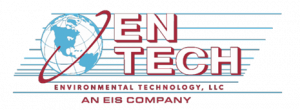Drywells are a common means of stormwater management in the southwestern deserts. Drywells are designed to receive stormwater runoff and allow the waters to percolate into the subsurface soils well above the regional aquifer. Environment Technology, LLC (EN TECH) provides a full line of drywell services for owners of existing drywells or property owners seeking stormwater management solutions. Drywells are required to be registered in the state of Arizona and are regulated by the Arizona Department of Environmental Quality (ADEQ) under the Aquifer Protection Program (APP).
Drywell Registration Assistance
All persons who own an existing drywell or who plan to install a drywell are required to register the drywell with ADEQ. Drywells are also required to be registered prior to decommissioning. EN TECH can assist drywell owners in the registration procedures.
Percolation Testing and Subsurface Characterization
Effective stormwater management requires an understanding of drainage patterns and subsurface permeability for percolation of stormwater disposal. It is also important to direct stormwater away from areas where chemicals are used, transferred or stored that could contaminate the water. EN TECH’s geologists and engineers provide site drainage evaluations and design. Percolation tests are performed on subsurface soils to evaluate soil permeabilities and capacity of the soils to absorb stormwater disposal from drywells. These studies assist in the effective design of stormwater management systems.
Design and Installation
Drywell designs incorporate several factors including:
- The anticipated volume of stormwater
- The drainage area feeding the drywell
- Information on historical precipitation events
- Characteristics of the drainage surfaces (e.g. concrete, asphalt, grass, dirt)
- The types and distribution of subsurface soils
- The permeability and storage capacity of the subsurface soils
- The depth and local use of groundwater
site usage and chemical storage
EN TECH evaluates these factors in determining the need for retention basins, pretreatment equipment and designing the number, location, size, depth and sediment handling capacity of the drywells. ADEQ requires drywells be installed by a licensed drywell driller. EN TECH works closely with several licensed drillers in the specification and installation of drywells.
Aquifer Protection Permit - Determination of Applicability
Drywells may be regulated under ADEQ’s APP program when they are in areas where hazardous materials are used, stored, loaded or treated or when they receive discharges other than stormwater (e.g. industrial wastewater injection wells). The determination as to whether a drywell is regulated under this program rests with ADEQ. ADEQ may supply the drywell owner with a Determination of Applicability form to be completed for their review in determining if an APP is required. EN TECH assists our clients in the collection of data and preparation of the determination of applicability form.
Aquifer Protection Permit Application and Regulatory Liaison Services
The APP requirements apply to drywells that drain areas where hazardous substances are used, stored, loaded or treated. The APP is used to ensure that best management practices are followed and that no hazardous substances enter the drywell. ADEQ may require drywell owners apply for an APP after review of the determination of applicability form.
Best Management Practices Plan (BMPP)
The APP may require that the drywell owner develop a Best Management Practices Plan (BMPP) in order to minimize the possibility of contaminating soil, groundwater or surface water from contaminated runoff. This plan is typically only applicable to industrial or commercial properties that use, store, load or treat hazardous substances. Discharge of any contaminant resulting in a violation of the Aquifer Water Quality Standard (AWQS) is prohibited by state law.
Some factors to consider in developing a BMPP include:
- Types of hazardous substances present and how they are used
- Exterior and interior locations of storage, use and/or treatment areas
- Site drainage patterns
- Spill containment structures
- Spill response procedures; containment, cleanup and waste disposal
- Waste management and housekeeping procedures including containerization, waste minimization and recycling/reuse
- Drywell maintenance practices
- Employee training; chemical handling, spill response and waste disposal
- Pretreatment and alternative discharge options
Investigations and Sampling
If a drywell owner suspects contamination or is directed by ADEQ to perform an investigation of the drywell, EN TECH can develop and implement a drywell investigation to evaluate the presence and extent of contamination. EN TECH’s investigation procedures are designed to address the concerns of ADEQ while being cost-effective to our clients. ADEQ may require an investigation of a drywell prior to abandonment. The investigation process is summarized in the Drywell Investigative Screening Process Chart and may involve some or all of the following:
Some factors to consider in developing a BMPP include:
- Collection and analysis of sediment samples from the drywell settling chamber
- Background information on drywell construction, pretreatment, subsurface soils, surface water, groundwater depth and flow direction
- Settling chamber clean out
- Drilling an investigative soil boring adjacent to the drywell, log the soil profile, collect soil samples and determine the vertical extent of soil contamination, if any
- Analyze soil samples for contaminants of concern and compare with Groundwater Protection Levels (GPLs)
Abandonment and Clean Closure
EN TECH can assist the drywell owner in the proper registration notification, investigation and abandonment procedures for drywell decommissioning. Clean closures do not require an APP permit. However, a drywell investigation may be required prior to closure to satisfy clean closure requirements.
